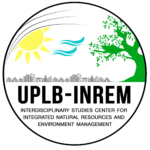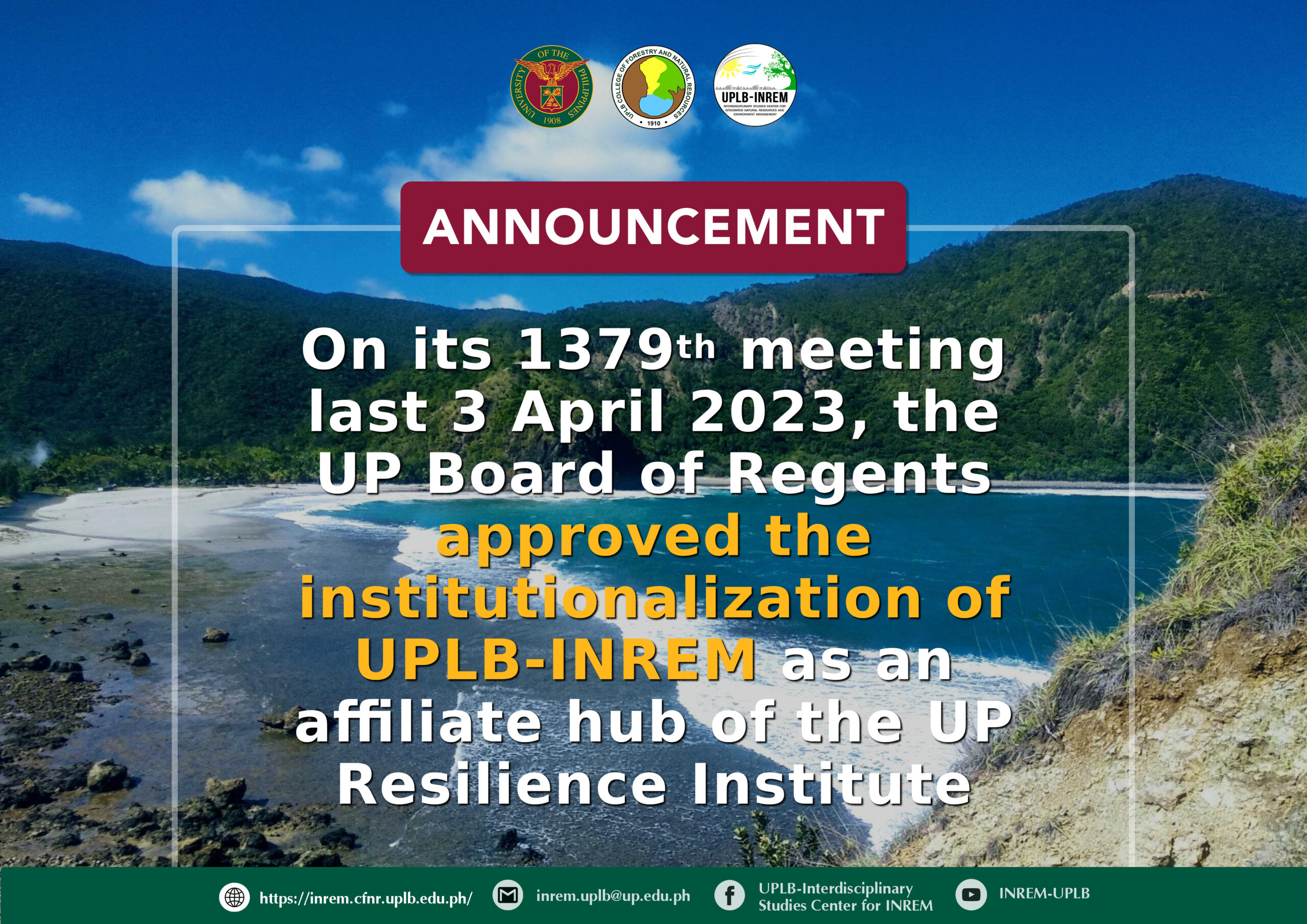The University of the Philippines Board of Regents (UP BOR), the highest decision-making body of the university, has approved the institutionalization of UPLB-INREM as an affiliate hub of the UP Resilience Institute in its 1379th Meeting on 3 April 2023, thereby elevating UPLB-INREM as a full-fledged center.
Initially established as a virtual center through Administrative Order No. 140, series of 2013, by the UPLB Office of the Chancellor, UPLB-INREM envisions to become a world-class Center of Excellence in integrated natural resources management and environment protection through research and development, and public service. It has completed 20 research and development and extension projects generating PhP102 M from a PhP 1M seed fund provided in 2013 that contributed to the expanding body of knowledge on integrated natural resources and environment management, resulting in the publication of numerous journal articles and other knowledge products. INREM also built institutional capacity of 7 SUCs and at least 31 municipalities located in 8 provinces; established linkages to at least 11 local, and 11 int’l organizations and networks, and 19 foreign universities and research institutions; provided technical assistance to various government agencies, NGOs, private and local communities; mentored at least 25 young professionals, 2 Ph D students, 4 MS students, and 5 BS students; and provided early career employment opportunities to at least 18 UP graduates. Moreover, the Center has so far convened one national conference and three international conferences on INREM, with a fourth one already in the works. Currently housed at the College of Forestry and Natural Resources, UPLB-INREM implements five (5) ongoing projects on various research areas, namely, bioproduction systems, payment for water ecosystem services, natural capital accounting, and multi-hazard resilience-building.
UPLB-INREM operates through a 27-member Technical Working Group representing different disciplines from 10 colleges and school of the university. It is being led by Dr. Juan M. Pulhin, Professor and Academician from CFNR who has been serving as its Chair since 2013. The Chair is assisted by one University Researcher, and more recently, one University Research Associate who is on special detailed from UPRI.
As a UPRI hub, UPLB-INREM aims to contribute to the promotion of integrated natural resources and environment management as a core component of resilience. Over the years, the two institutions have collaborated on numerous projects and programs, beginning in 2017 with the ADB-funded Component C1 of the Improved Resilience for Future Disasters that strengthened the capability of 29 LGUs in Yolanda-stricken areas, as well as the 2nd and 3rd International INREM Conference held in 2019 and 2021, respectively. At present, UPRI and UPLB-INREM serve as partners in implementing the “Establishing Safe and Resilient Universities (SAFER-U) in the Philippines through Risk-Sensitive and Climate Change Calibrated Land Use, Development and Infrastructure Planning” and a resilience project in Albay funded by the Asia-Pacific Network for Global Change Research.
UPLB-INREM would like to express its gratitude to UP President Angelo A. Jimenez and the UP BOR for their approval and support. The Center hopes that this institutionalization will open greater opportunities and partnerships to develop science-based technologies and solutions to complex and interconnected problems in natural resources management and environmental protection, produce and disseminate scholarly outputs that will serve as sound basis for policy and decision-making, build capacities of local government units, communities and other stakeholders on climate-resilient and sustainable natural resource management, and organize national and international conferences and fora to advance the science, policy and practice of integrated natural resources and environment management in the Philippines and the Asia-Pacific Region. (Kyle Vincent R. Singson, Christian Ray C. Buendia and Catherine C. de Luna, UPLB-INREM)

